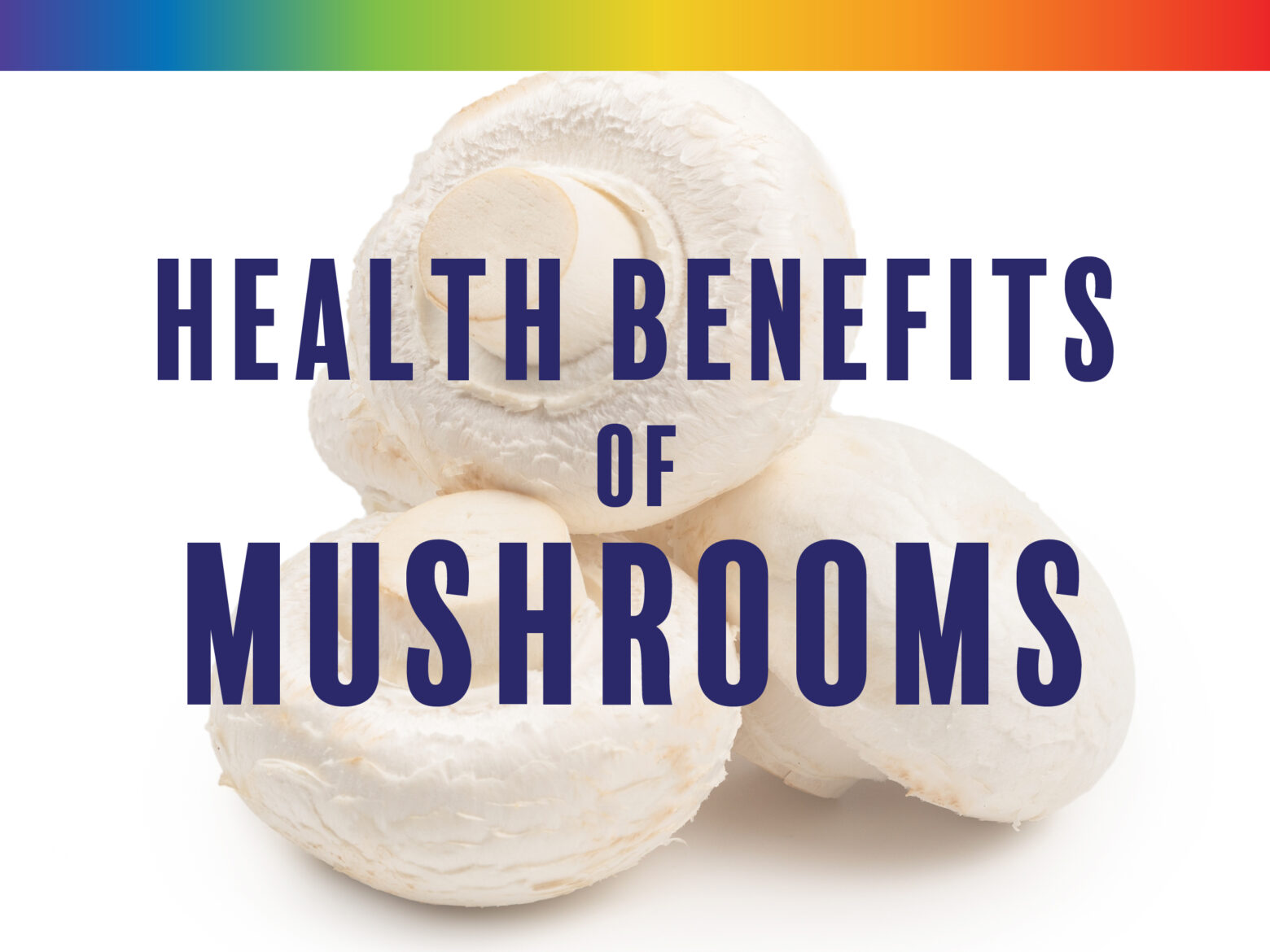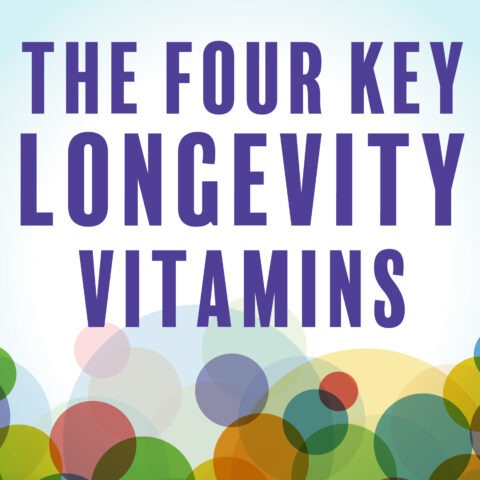Longevity Health Benefits of Mushrooms
Loren Cordain, Ph.D., M.S., Mark J. Smith, Ph.D., Ph.D., Trevor Connor, M.S.

This article is an excerpt adapted with permission from the book Paleo for Life: Superfoods to Slow Aging, Boost Longevity, and Enhance Your Well-Being by Dr. Loren Cordain, Trevor Connor, and Dr. Mark J. Smith. In this groundbreaking guide, the leaders of the Paleo nutrition movement reveal the longevity superfoods that can help you live longer and better, starting today.
Until fairly recently, many Americans have given mushrooms a dietary shrug. Now, at last, the mushroom is getting the spotlight it deserves: None other than the New York Times named mushrooms “the ingredient of the year” in 2022.
Here in the United States, we each currently consume about 3 pounds of mushrooms a year, according to the U.S. Department of Agriculture, and we should probably eat more. The available evidence points to a strong association between eating mushrooms and good health as we age, with studies linking mushroom consumption to a lower risk of diabetes, hypertension, heart disease, and cognitive decline. Let’s explore the longevity health benefits of the humble mushroom.
Longevity-Boosting Nutrients in Mushrooms
Mushrooms contain protein and fiber but are wonderfully low in calories. One cup of cremini mushrooms has a scant 15 calories, for instance, but gives you 1 gram of fiber and 2 grams of protein. You can add mushrooms for flavor to practically anything you’re cooking or use them as a tasty side dish as often as you like.
Some of the specific longevity-boosting nutrients in mushrooms include:
- Carbohydrates: Scientists have been studying the carbohydrates derived from mushrooms for their anti-inflammatory and antitumor activities, especially the monosaccharides that activate our body’s cytokines, such as interferons and interleukins. These small proteins are crucial in supporting the activity of our immune cells. Glucans—one of the carbohydrates found in mushrooms—are especially potent when it comes to protecting us against carcinogens, pathogens, and toxins in the environment.
- Bioactive proteins: While mushrooms certainly don’t pack as much protein as some other plant sources, they have higher levels of bioactive proteins such as lectins. If you are familiar with The Paleo Diet®, you’ll know to avoid cereal and legume lectins; however, mushroom lectins are different. They can bind to cell surface carbohydrates and act as antitumor warriors.
- Lipids: Mushrooms are low in fat, yet they’re still a great source of essential fatty acids like linoleic acid. They are also a good source of oleic acid, a monounsaturated fatty acid. Additionally, mushrooms contain the bioactive compound ergosterol, which has demonstrated antimicrobial, antioxidant, anticancer, anti-diabetic, and anti-neurodegenerative effects, which can help reduce the risk of many age-related diseases.
Is It Better to Eat Mushrooms Raw or Cooked?
While many people love the extra crunch raw mushrooms can add to a salad, we recommend cooking mushrooms before eating them. That’s because the cell walls of mushrooms contain a fibrous polymer called chitin, and humans lack the chitinase enzyme to digest it. That means you won’t get the same beneficial nutrients if you eat raw mushrooms as you would if you cooked them first. In addition, certain edible mushroom species might pose health concerns if eaten raw.
RELATED: Get Cooking with Different Types of Mushrooms
The Age-Defying Health Benefits of Mushrooms
From lowering your cholesterol to promoting a healthy gut, from keeping you cognitively sharp to fighting cancer, mushrooms have the power to help you live a longer, healthier life. Here are some of the potential health benefits of mushrooms in your diet.
- Mushrooms decrease cancer risk: When one group of researchers reviewed 17 scientific studies on cancer conducted between 1966 and 2020, the results were persuasive: Eating just two medium-size mushrooms (about 2 tablespoons) a day can lower your risk of cancer by 45%.
- Mushrooms improve lipid profiles: Using animal studies, scientists have shown that eating more mushrooms has the potential to improve our lipid profiles. That’s because mushrooms contain compounds that block cholesterol from being absorbed and inhibit cholesterol production.
Just two mushrooms a day can lower your risk of cancer by 45%.
Mushrooms Support a Healthier Immune System
Many of the macronutrients contained in mushrooms play a role in supporting our immune systems. For instance, mushrooms contain vitamin B6, which helps the body form red blood cells, and selenium, which supports the body’s ability to fight against cell damage by making more antioxidant enzymes. Researchers have shown in animal studies that β-glucans in mushrooms even have the power to “train” immune cells.
Mushrooms Protect Brain & Telomere Health
Could eating more mushrooms keep you cognitively sharper as you age? The research seems to support this. A pair of wide-ranging 2024 scientific reports have concluded that adults who eat more mushrooms experience less risk of cognitive decline associated with aging than adults who don’t. In addition, one of the most potentially powerful longevity benefits of eating more mushrooms is that they can help protect your body’s telomeres from damage.
Two Potent Mushroom Longevity Nutrients
Two of the most powerful nutrients in mushrooms are currently in the scientific spotlight: the natural antioxidants ergothioneine—which our own bodies can’t synthesize, and which acts as a potent protector of our telomeres—and glutathione. Both amino acids are natural warriors against the oxidative stress our cells suffer over time.
Ergothioneine
Mushrooms offer the highest dietary source of the amino acid ergothioneine. Ergothioneine is a powerful antioxidant in its own right. But this isn’t the only way it helps longevity. It also plays a key role in preventing the potentially damaging shortening of telomeres as an important hallmark of aging. It’s such a powerful antioxidant that ergothioneine is known as the longevity vitamin in some research circles, especially when it comes to fighting the cognitive decline and mobility problems associated with growing older.
Among other things, ergothioneine also helps our bodies clear out senescent cells. Senescent cells are those that have reached maturity and stopped multiplying but don’t die off when they should, potentially causing damage to otherwise healthy cells.
Glutathione
A second powerful anti-aging component of mushrooms is glutathione. Emerging research demonstrates that glutathione promotes better cardiovascular and metabolic health as we get older by protecting living cells against toxic molecules. In one particularly exciting animal study, researchers compared young mice to older mice. Not surprisingly, they found the older mice had significant age-associated cognitive decline and brain defects, but giving the older mice glutathione supplements both improved cognition and reversed the brain defects.
Finally, glutathione may play a large role in protecting us against the cardiovascular diseases often suffered by those with type 2 diabetes. This is important because the leading cause of death among those with type 2 diabetes is heart disease—and many people with type 2 diabetes experience a glutathione deficiency. Scientists are now studying the benefits of glutathione supplements in combating diabetes-related cardiovascular disease.
See more about which mushrooms to eat for antiaging health benefits in Paleo for Life.
Paleo for Life
Paleo for Life reveals how your favorite foods and flavors can help you live a longer, healthier life.
Discover the most potent antiaging superfoods and see how what’s on your plate connects to how you feel each day. Includes a two-week meal plan and 50+ superfood recipes.
Live longer and better, starting today, with Paleo for Life.




